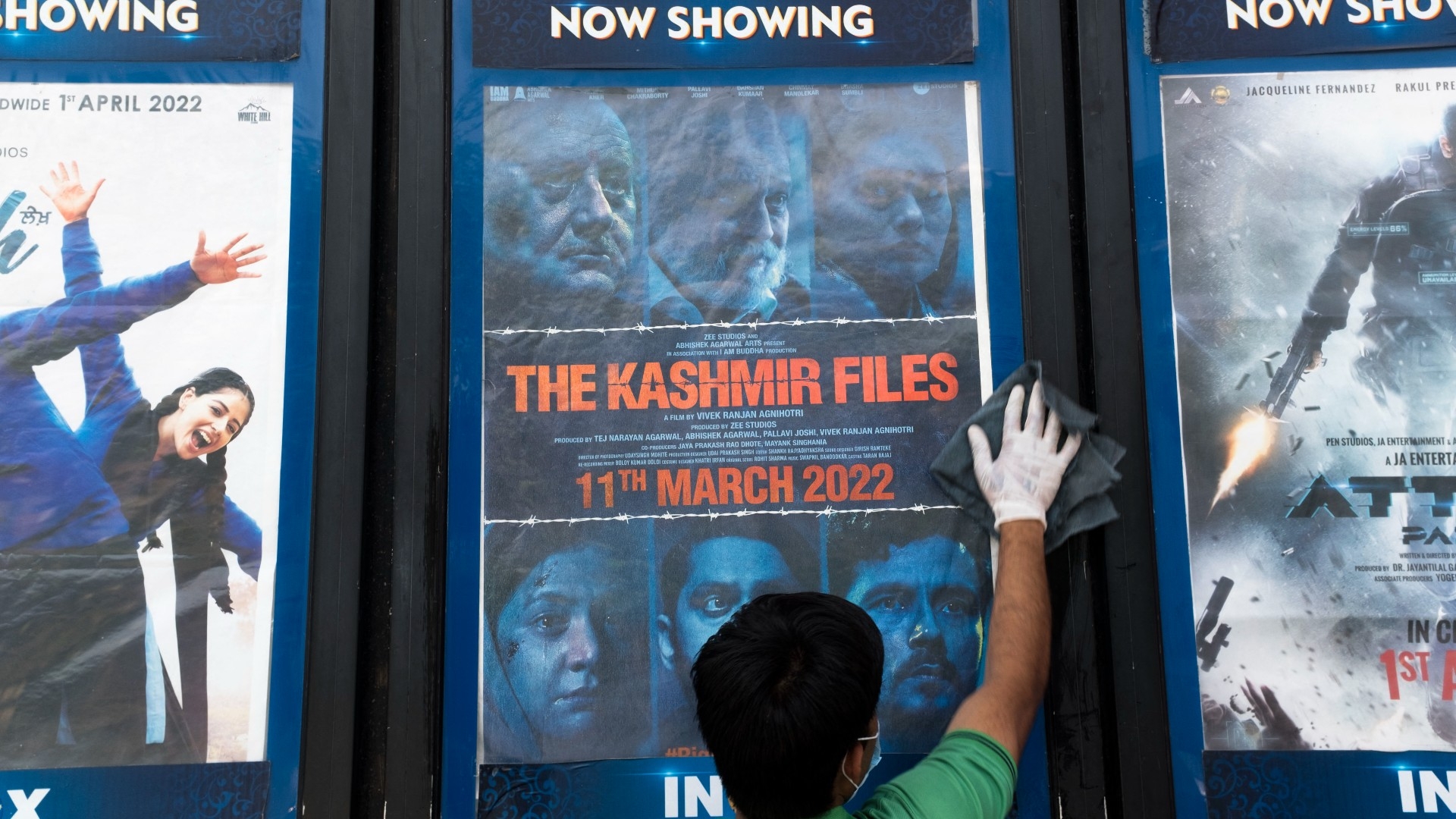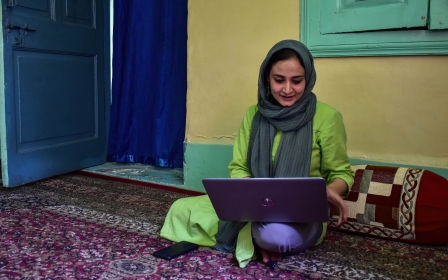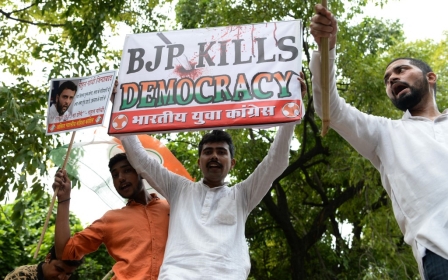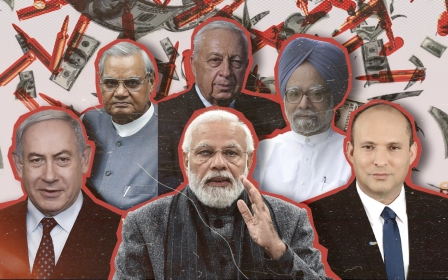Israeli officials scramble to avert diplomatic crisis in India over 'Kashmir Files' film

Senior Israeli diplomats are scrambling to distance their government from disparaging remarks made by an Israeli filmmaker about a film the Indian government has used as a central plank of its narrative on Kashmiri history.
On Tuesday, several current and former ambassadors began publishing statements condemning the award-winning Israeli filmmaker Nadav Lapid for describing The Kashmir Files as "propaganda" and "vulgar" and "inappropriate for an artistic festival".
Lapid was speaking in his capacity as head of the jury of the competition section of feature films at the closing ceremony of the 53rd International Film Festival in India, held in Goa.
"We were - all of us - disturbed and shocked by the 15th film, by the movie The Kashmir Files," Lapid said.
New MEE newsletter: Jerusalem Dispatch
Sign up to get the latest insights and analysis on Israel-Palestine, alongside Turkey Unpacked and other MEE newsletters
On Tuesday, Ron Malka, director general of Israel's Ministry of Economy and Industry and a former ambassador to Delhi, condemned Lapid's comments.
"This is not the Israeli position. I stand by my Indian friends today and every day," Malka said in a tweet.
Malka's comments came hours after Naor Gilan, the current Israeli ambassador to New Delhi, wrote an open letter to Lapid in which he castigated the award-winning filmmaker for speaking his mind about the film. He called Lapid's remarks "insensitive and presumptuous".
Dishonest depiction
The Kashmir Files has been at the centre of a storm over the past year for its dishonest depiction of the exodus of Kashmiri Hindus, known as Pandits, from Indian-controlled Kashmir in the early 1990s when an insurgency began against Indian rule.
Lapid's comments are the latest in a stream of criticism levelled at a film that was both celebrated and endorsed by the Indian government and Prime Minister Narendra Modi himself.
Critics have argued that The Kashmir Files , released in March 2022, has been used by the Indian government to demonise Muslims as part of its right-wing Hindutva project, which aims to turn India into a Hindu state.
With the support of the government, including several tax breaks across the country, the film has become one of the highest-grossing Indian films of 2022.
Indian reaction to Lapid's comments has been diverse. Whereas several Indian writers, actors and activists welcomed the criticism, right-wing supporters of Modi's government resorted to Holocaust denial and equivocations that Hollywood films on the Holocaust were works of propaganda, too.
Gilan also hinted that his team was facing intimidation and harassment after Lapid's review of The Kashmir Files.
"You will go back to Israel thinking that you are bold and “made a statement”. We, the representatives of Israel, would stay here. You should see our DM boxes following your “bravery” and what implications it may have on the team under my responsibility," Gilan said.
Israeli propaganda at IFFI
Indian activists, however, told Middle East Eye that there were several other issues at the festival, including the artwashing of Israeli crimes at the event.
On Sunday, the festival hosted the international premiere of the fourth season of the Israeli hit television series, Fauda, which is about an Israeli Mista'arvim, or elite undercover unit, that keeps Israel "safe" from "Palestinian terrorists".
Fauda enjoys a massive following in India. Earlier this month, a television show based on Fauda, called Tanaav, premiered on the Indian streaming service, SonyLiv. Instead of being set in the occupied Palestinian territories, Tanaav is set in Indian-controlled Kashmir.
Days prior to the premiere, the Boycott Divestment Sanction (BDS) movement released a statement calling on the festival to "end its valourisation of apartheid Israel’s death squads, war crimes and settler-colonial violence".
"By hosting the Asian premiere of Fauda’s new season, IFFI is complicit in promoting and justifying grave human rights violations."
"Leaders of Israel’s apartheid regime have expressed their “pride” and “gratitude” for Fauda and its significant role in sanitising Israel’s brutal military occupation," the statement read.
Achin Vanaik, a Delhi-based writer and social activist, described the Indian government as "admirers" of Israel and Zionism.
"Since it is pushing its Hindutva messaging through media, education and even Bollywood, there is reason why it may wish to bring in a pro-Zionist film or push the idea that Muslims (whether Palestinians or otherwise) are terrorists or 'naturally' prone to terrorism," Vanaik told Middle East Eye.
"Of course, Israel provides training for Indian police officers who serve in and outside of Kashmir, and here, too, the message of 'Islam or Muslim-terrorism' needing to be punished is one this government would be keen to push," Vanaik added.
Under Narendra Modi, Tel Aviv has emerged as a key ally of New Delhi. The countries upgraded ties to a strategic partnership in 2017.
India is Israel's largest buyer of arms and weapons, amounting to around $1bn per annum.
This story has been updated to include the Israeli diplomats' comments.
This article is available in French on Middle East Eye French edition.
Middle East Eye delivers independent and unrivalled coverage and analysis of the Middle East, North Africa and beyond. To learn more about republishing this content and the associated fees, please fill out this form. More about MEE can be found here.




